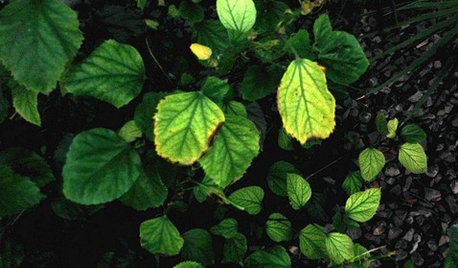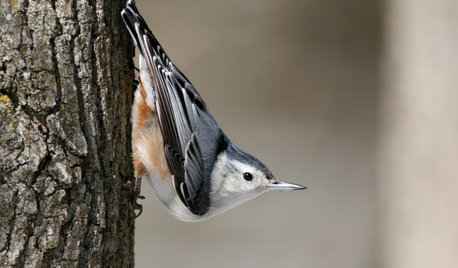How often and how much to feed? How often to srapy with water?
natureregenerator
10 years ago
Related Stories

GARDENING GUIDESWhat's Wrong With My Plant? Leaves Often Hold the Clues
Learn how to identify common plant ailments by reading their leaves
Full Story
HOME TECHTo Feed and Protect: Care for Your Pet From Afar With New Devices
You might miss the nuzzles, but your dog or cat won't miss food, water or monitoring with these high-tech feeders and cameras
Full Story
GARDENING GUIDES8 Native Shrubs for Year-Round Bird Feeding
It’s not just about berries. These plants provide insects for birds and seasonal interest for gardeners
Full Story
GARDENING GUIDES15 Native Flowers That Feed Native Bees
These perennials offer superfood to hundreds of bees and are gorgeous in their own right
Full Story
GARDENING GUIDESGreat Design Plant: Anemone Canadensis Adds Pizzazz to Water’s Edges
Plant Canadian anemone along pond, lake or stream edges for a splash of white flowers in late spring
Full Story
SAVING WATER11 Ways to Save Water at Home
Whether you live in a drought-stricken area or just want to help preserve a precious resource, here are things you can do to use less water
Full Story
LANDSCAPE DESIGNHave Your Garden Fountain and Be Water Wise Too
Learn which water features are more suited to conservation, and get strategies for placement and use
Full Story
GARDENING AND LANDSCAPINGGardens Tap Into Rill Water Features
Rooted in ancient design, this water feature is popular again as a way to help contemporary landscapes flow
Full Story
COMMUNITYSimple Acts: The Unsung Power of a Good Neighbor
There are many ways to be a good neighbor, and they're often easier than you think
Full Story
GARDENING FOR BIRDSBackyard Birds: Those Nutty Nuthatches
The North American songbirds, which often perch upside down, make themselves known in the winter landscape
Full StorySponsored
More Discussions






chuckiebtoo
chazz1100
Related Professionals
Lake Oswego Landscape Architects & Landscape Designers · Saint Louis Park Landscape Architects & Landscape Designers · Suffern Landscape Architects & Landscape Designers · Surprise Landscape Contractors · Clearlake Landscape Contractors · Dedham Landscape Contractors · Mequon Landscape Contractors · Tigard Landscape Contractors · Athens General Contractors · Clarksville General Contractors · Kilgore General Contractors · Los Alamitos General Contractors · North Lauderdale General Contractors · Selma General Contractors · Signal Hill General Contractorsequinoxequinox
sbryce_gw
Jasdip
hummersteve
BluButterfly323
hummersteve
natureregeneratorOriginal Author